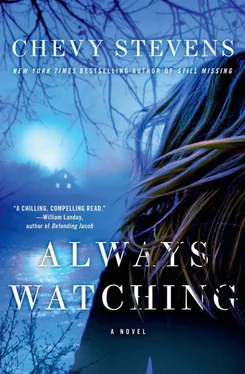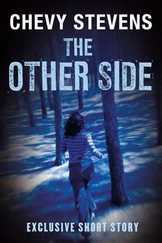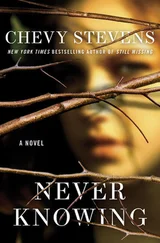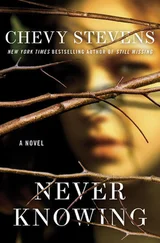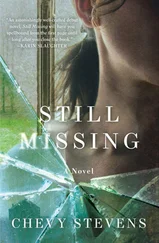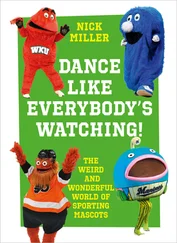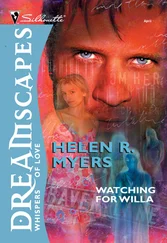Robbie stared back up at the ceiling, blinking hard. “Something happened to me in that ambulance. I don’t know what it was, or why it happened.” He met my eyes. “But I’m not afraid to die anymore.”
I thought of Paul, thought of my mother and father, about my own fears of death. Then I realized I’d climbed down into that septic tank without a moment’s hesitation. Being forced to conquer my fear in the barn had set me free.
I was overwhelmed by emotions and thoughts I wanted to take out and look at when I was alone. “Well, you’re not dying on my watch.”
He smiled, but then his face turned serious, the lines pulling deep around his mouth. “I should’ve protected you better when we were kids.”
“You did protect me—the best you could. You were only sixteen. Your job wasn’t to look after me. Our parents should’ve protected both of us.”
Anger washed across his face. “You’re always blaming them for everything that happened when we were kids. They tried their best.”
I wasn’t surprised at the disconnection between my memories and his. I’d seen it many times in therapy, two siblings having a completely different opinion of their childhood. It was classic in a dysfunctional family, where the abuse was never discussed and the abuser always defended. But it made me sad. That the silence, and all things we don’t talk about, still separated us.
I said, “I loved them too—but they had a lot of problems.”
“You don’t even know what it was like. You were never around.”
And there it was: the resentment. I’d moved away, and he’d stayed.
I tried to calm down, fighting my urge to defend myself for breaking the cardinal rule of our family—unhappy or not, never talk about what was really going on. My trying to seek personal happiness, to rise out of the tears and black eyes, the screaming and crying, was the worst betrayal of all. I’d developed ideas, spoke the language of feelings, and worst, I’d been impatient and angry with them for not wanting more, for not trying to join me in my world. And they’d felt it.
I wanted to explain that leaving was the only way I could survive, that our family was mired in pain and denial, and that I couldn’t pretend anymore, couldn’t keep the silence. But Robbie had just had surgery and shouldn’t be getting upset, so I kept it all in, again, and said, “You could’ve left.”
“How, Nadine? How the fuck was I supposed to do that? So Dad could beat Mom to death? So he could fall down the stairs one night?”
Robbie’s face was red. The old anger finally coming to a head. My attempt to skirt the surface of our issues had failed. And it wasn’t the first time. In this intimate moment, death’s shadow still lingering between us, I realized that I always felt this in our conversations, had always done this. Thinking that I was holding back, but still my urge to push, to heal and fix, so people could be what I needed, was always there. In my tone, in the subtle way my tongue pushed the words out of my mouth. And my brother, the only person who’d shared my blood and my story, knew what I was really saying, even when I wasn’t speaking at all.
So now I said it out loud, for the first time in our lives.
“They weren’t your responsibility. They were adults. They made their own choices—and so did you. I’m not going to let you blame me for that.”
The beeping of the monitor signaled the emotions warring in Robbie’s body. Then something changed in his face. He rested his head back on the pillow, his breathing still heavy but his heart rate starting to slow.
After a moment, looking up at the ceiling, he said, “You’re right. I could’ve left. But I didn’t want to drive over there one day and find Mom dead, hanging from a rafter or something, Dad passed out in his own puke. I always thought if I just watched over them, I could stop it, I could make everything be okay. But they both died anyway.” He paused for a beat. “Maybe I just used them as a reason for not having to deal with my own shit. I never could take a chance, not even for Willow.” He turned his face toward me. “I was glad you got away. I liked thinking of you in your nice house, with your family.”
Tears were leaking from my eyes. Robbie’s were also damp, his mouth a grimace as he fought back the tears. I’d been wrong. He did know, he did see.
I said, “When we love people, we want to help them—even when they don’t want it. But sometimes we just end up hurting ourselves.”
He said, “You’ve done well, though. I’m proud of you.” And he was. I could hear it in his voice. The anger I’d felt from him all these years wasn’t because I’d followed my life’s path: It was because I’d pushed him to do the same. I thought of Lisa, wondered if that was the root of all our problems.
I said, “My family wasn’t perfect either. I made a lot of mistakes with Lisa.”
“What happened between you two?”
“I don’t know…. Maybe too much happened.” I told him about Garret. Then about my own memories in the barn with Aaron, while watching Robbie’s monitor and pausing when his heart rate spiked, reminding him to breathe.
When he’d calmed down a little, he said, “That bastard—hope he gets the crap beat out of him in prison. You should tell Lisa what happened to you.”
“Maybe. If she ever speaks to me again.”
“You haven’t heard from her?”
“No. I’d hoped she’d leave the commune once Aaron was arrested.” I explained what I’d learned from the police. “But I have a feeling she’s still there.”
He grew paler, starting to look tired. He rested his head on the pillow, his eyelids drooping. “Keep me posted, okay?”
“I will. But I should let you get some rest. See you in the morning.”
* * *
After I left Robbie’s room, I called the sergeant. The police still hadn’t had any sightings of Joseph or Daniel. Joy, who apparently ran the commune alongside Aaron, wouldn’t let them search the premises, and they still didn’t have cause to get a warrant because neither of the men had been seen entering the building. The sergeant suspected they were probably off the island now anyway, but he said they’d still get Robbie protection—he was a key witness in Willow’s murder. Now that he was awake, they’d also take his statement, and they were assembling a forensics team to search for Willow at the old site. She was finally going home.
I didn’t understand why none of the members, especially Lisa, had left the commune now that Aaron was under arrest. The sergeant told me that it was possible most of them didn’t know what had happened. They didn’t have phones, TV, or Internet access. Their only information came from the staff, and they were obviously keeping everything quiet until they were able to speak with Aaron.
In the parking lot, I sat in my car for a moment, staring at the hospital through the thick wall of rain that had started thundering down, and thought about my conversation with my brother. It scared me, how close I had come to losing him—and his story about my earring. Everything on the other side of my window looked distorted now, flashes of colors and pale faces as bodies rushed by, but I couldn’t make out features, couldn’t bring their edges into focus. Aaron’s words came to mind. Just because you can’t see something doesn’t mean it’s not there.
The hospital was a gray blur, through my tears and the rain. I wondered which room was my brother’s, thinking how at peace he had seemed when he spoke about how he’d nearly died. Then I thought of Paul, of those last moments before he took his final breath and died in my arms, how serene his face had looked as he let go of me. Now I realized I was the one who had never really let go of him.
Читать дальше
